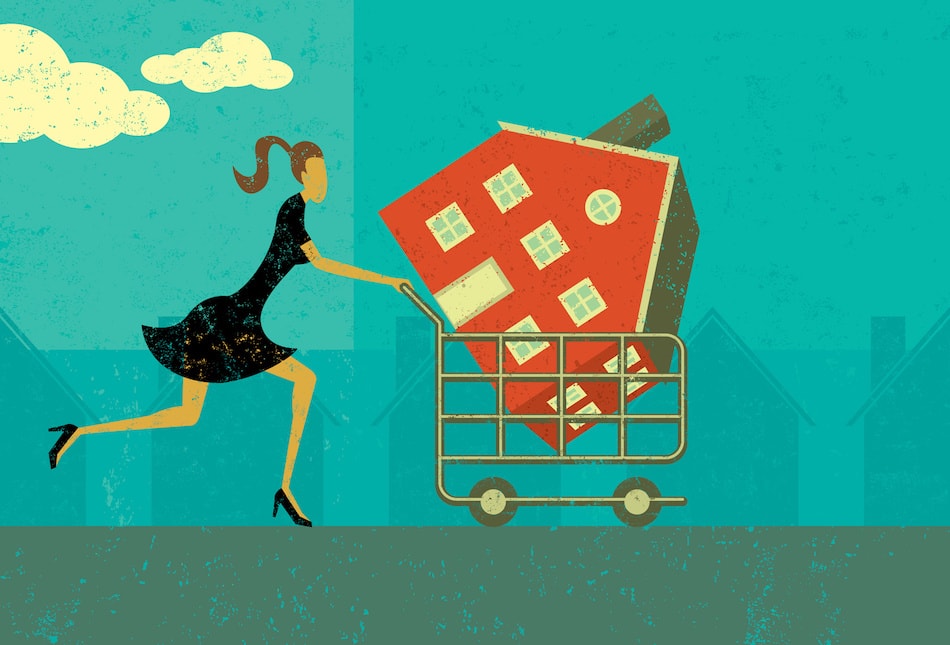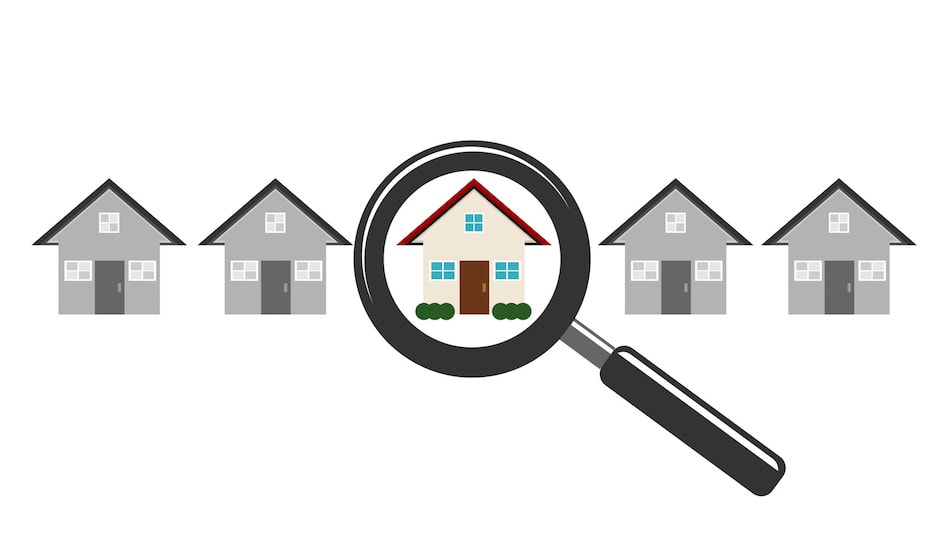What You Need to Know About Home Buying
Posted by Justin Havre on Monday, September 17th, 2018 at 10:12am.
 Like most major purchases, home buying is a major step in the buyer's life. Between the financial responsibilities, the negotiations, and the seemingly endless numbers of homes to tour, it's common for new home buyers to be unsure about how to get started. However, once buyers know the basics, they'll be far more likely to choose a home that works for them at a price they can afford.
Like most major purchases, home buying is a major step in the buyer's life. Between the financial responsibilities, the negotiations, and the seemingly endless numbers of homes to tour, it's common for new home buyers to be unsure about how to get started. However, once buyers know the basics, they'll be far more likely to choose a home that works for them at a price they can afford.
For informational purposes only. Always consult with a licensed real estate professional before proceeding with any real estate transaction.
Managing Your Finances Before a Home Purchase
Home buyers need to know their price range before they can do anything else. How much a buyer can afford is not necessarily as intuitive as it may seem, so buyers are encouraged to check with several lenders to get a general idea of the state of their finances. The rule of thumb is to allocate 30% of a home buyer's income to their mortgage, though many home buyers find this impossible due to the inflation of real estate across many parts of Canada.
Home buyers should note that a pre-approval does not guarantee the loan will go through at the time of purchase. Finances are a common reason why home sales fall through during escrow, so keep this in mind when visiting lenders.
The following tips will help buyers prepare for the financing portion of a home purchase.
Check Your Credit
Your credit report is like a financial report card. Loan officers will use a buyer's credit report, among other financial factors, to determine how much they can borrow and at what interest rate. Before borrowing money, it's important to be sure that the credit report is accurate.
Everyone is entitled to a free credit report each year. Run the report now and check the report for factual accuracy. Contact credit reporting companies about any errors found.
Talk to a Loan Officer
Contact a loan officer for information about the mortgage approval process. Talking to a loan officer will help buyers learn about hurdles that they may face during the loan process, so they can troubleshoot in advance. For example, a loan officer may tell a buyer that their debt-to-income ratio is too high and that they may pay a higher interest rate when they take out a loan.
Finding this out in advance will enable buyers to pay off some of their debts before it's time to borrow.
Prepare the Down Payment
Hopefully any buyers at this stage have already started saving for a down payment. A loan officer can tell buyers how much they need in order to buy a home. If buyers don't yet have the full down payment amount that they need, it's not too late to start budgeting. Buyers should write up a plan that will enable them to save the amount they need by the time they're ready to buy.
Future Income Needs
Remember that as a family's dynamic changes, so too do income and financial obligations. Young families have to pay a lot more for child care but often have greater potential for career growth. Think about what to expect from any future income, and perform the calculations to determine if the money is there to pay for a home and its upkeep, on top of any other expenses. In some cases, it may be better to purchase a smaller home, because the lower payment allows buyers to take advantages of opportunities that they would not have with a higher debt load.
Starting Your Home Buying Search
This is the part most people get excited for. It's time to tour houses and research neighborhoods, to browse listings and write up home-buying wishlists. Though many don't realize it, this part of the process has many pitfalls and should be handled as seriously as sorting out one's finances. Here are some considerations to successfully search for a new home.
Find a Real Estate Agent
 A real estate agent isn't strictly necessary when it comes to buying a home, but they can be an asset for buyers who want a smooth experience. A real estate agent doesn't just point out features of the home and advise buyers about the reputation of their lender, they also have the inside knowledge and insight to find properties a home buyer may not have originally considered. They structure offers and research zoning regulations of a neighborhood.
A real estate agent isn't strictly necessary when it comes to buying a home, but they can be an asset for buyers who want a smooth experience. A real estate agent doesn't just point out features of the home and advise buyers about the reputation of their lender, they also have the inside knowledge and insight to find properties a home buyer may not have originally considered. They structure offers and research zoning regulations of a neighborhood.
Finally, they help ensure the paperwork is properly completed. Mistakes on paperwork can delay the home buying process for weeks or even months and can even lead to legal trouble if the buyer isn't careful.
A real estate agent is a buyer's closest ally during the home buying process, so buyers will want to pick an agent that understands their needs and priorities. Start contacting agents to ask for suggestions about neighbourhoods where buyers can find a good home in their price range. This process may help buyers decide which agent to work with when spring comes.
Consider the Location
The old real estate adage “location, location, location” means so much more than choosing a place at the corner of First and Main. Urban planners and social scientists who study how neighbourhoods work seem to agree that Calgary home buyers, whether it's a first home or not, should base their decision on the amenities of the community or the DNA of a neighbourhood.
So, having a variety of housing available in an area is part of the equation, such as single- and multi-family homes in a variety of price ranges, but buyers also want to be close to shopping with access to transportation and recreation or cultural amenities such as a library. It's those amenities, which also include the streetscape, tree canopy, sidewalks and walkability scores, which are the drivers when it comes to find that triple “L” location.
While buyers can renovate almost any aspect of an existing home, they cannot renovate the neighbourhood. Spend some time examining the environment. Is it a good lifestyle fit? Does the property itself seem in good condition? Does it look like it is prone to flooding? Does the local school system live up to any needs and expectations? Every home buyer's needs are unique and not every community will be a perfect match.
Consider Good Design in a Neighbourhood
 Great urban design can be so subjective. Scientifically, it means a neighbourhood has flavour, character, and diversity in the structure types, housing styles and price ranges.
Great urban design can be so subjective. Scientifically, it means a neighbourhood has flavour, character, and diversity in the structure types, housing styles and price ranges.
If urban design is important, then look closely at Calgary neighbourhoods. Good urban planning wasn't exactly on the radar for so many years in our city. Developers built so many communities with just single-family homes. Neighbourhood design in the 1970s through to the 1990s was more about building big houses, maybe with a tot lot at the end of the street. Not to say these neighbourhoods are wrong or bad – many who grew up in these neighbourhoods long to return to the haunts of their youth.
But for those Calgary home buyers looking for a distinctive community, look pre-1950 or post-2000 for the traditional neighbourhoods that people love. Main Streets, stores, pathways and architectural interest.
Investigate Real Estate
Buyers know they want to buy a house, but do they know where? What can they get for the amount of money that they're planning to spend? These are all good questions to answer while buyers are planning for their upcoming real estate transaction.
- Explore neighbourhoods. Buyers should start driving around neighbourhoods where they are thinking about buying a home. Investigate school districts, entertainment venues and drive times to the office so as to figure out the best location.
- Go to a few open houses. Buyers may have already started exploring real estate advertisements online, but seeing the houses in person is an entirely different experience. Go to open houses to learn more about the condition of the homes that buyers are thinking about buying and the neighbourhoods where they are located. This can help buyers decide if the types of homes they're thinking about buying are really what they want.
Selecting a neighborhood isn't solely about deciding what home buyers need at the time of purchase — they may also need to look up a few decades into the future to ensure they're making the right choice. As the economy shifts and changes, homeowners should pay attention to the current demographics as well as future renovations or plans for the area.
For example, if a new block of offices is planning to open in 2025, it may shift the neighborhood to mainly single professionals rather than young families. This kind of foresight and planning makes it easier to understand how well a buyer will fit into their current and future surroundings.
Ensure You Have Room to Grow
There are fundamentally three directions buyers can go after purchasing a home: expand, contract, and stay the same. People who are just establishing themselves may want to buy a West Calgary home that is large enough to have a family someday. Owners heading toward retirement frequently decide that they need something smaller and lower-maintenance. Buying a larger home has its benefits and disadvantages, but it is often easier to manage the maintenance of a larger home than to try to function in a house that offers little to no elbow room.
The burning question people should ask themselves when they're out looking at homes, is, "Can I picture myself living here for the next 10 years?" This can be a determining factor in choosing a neighbourhood. Buyers should be able to see themselves in that community as their household changes.
That could mean walkability may not be high on a buyer's priority list. Perhaps drivability is more important, or taking kids to sports or helping aging parents.
Why choose a 10-year period? With two economic downturns within the past 8 years in Calgary, it could very well be that a home won't appreciate at rates seen in the 15-year period prior to 2008. Buyers should contemplate how much equity they want to build up on their homes in Calgary and setting the threshold at 10 years could be extra insurance of good investment.
Smaller homes tend to be cheaper, so some home buyers will decide to skimp on space, which can be a mistake in some situations. If buyers imagine an increasing number of people living in the household, look for a home that will be large enough to accommodate everyone.
Don't forget that adequate space isn't enough: storage space can be just as important as living space. Look for a property with a closet in each bedroom and a large storage space in the attic, basement or garage. Having storage space will help homeowners maintain good quality of life and will make staying there feasible for the length of time households decide that they want to live in that house.
Although growing families are generally the ones who should consider buying larger, established families with aging grandparents may also want to invest in homes with room for a multi-generational household.
Accessibility in the Home
The term "accessibility" often means specific needs within the communities of seniors or people with disabilities. However, accessibility can relate to all kinds of community and home aspects.
When children are young, parents often want to know that the home and the neighbourhood are friendly to children, with well-kept parks and good schools. As homeowners get older, they should take future independence into consideration when buying a new home. Homeowners may be perfectly willing to go up a steep set of stairs now, but that could change in 10 years.
Think of the home's location in relation to shopping, dining, entertainment venues and health care as well.
Good School District
Regardless of whether or not a buyer plans on using the schools in their home's region, it's a good idea to research the school district where each home is located. Being in a good school district can make a home an attractive option to buyers should homeowners ever decide to sell, and having nice schools in the area is great if the buyer ends up needing to use them. Looking at each property for its long term potential can help buyers make their decision as they narrow down their choices.
Common Warning Signs to Look Out for in a Home
 Whether it is a first or fifth home purchase, buying a new home is an exciting time in anyone's life. It is a time filled with new beginnings and fresh starts.
Whether it is a first or fifth home purchase, buying a new home is an exciting time in anyone's life. It is a time filled with new beginnings and fresh starts.
In the excitement of finding a dream home, it can be easy to overlook some important factors that can affect a buyer's bank account down the road. Most potential home buyers aren't qualified home inspectors, but what are some basic items buyers can look for during a routine showing?
Examine the Mechanicals
Furnaces, air conditioning units, and hot water heaters are the backbone of any home. They keep households warm in winter, cool in the summer, and clean all year round. They are also big-ticket items when it comes time for replacements and upgrades. A real estate agent can help locate these in the home during a normal showing.
Look for evidence that the mechanicals are in good repair, working properly, and have been serviced regularly which helps extend their valuable lifespan. Some models will also show dates that indicate when they were installed. The average lifespan of most of these major mechanicals is typically around 13 and 15 years.
Dodge the Cold Drafts
No matter what kind of design a buyer's dream home may have, make sure to consider what it will feel like in every season. Older homes often have poor insulation and can be difficult and expensive to heat in some cases.
Examine the insulation as well as the condition of the windows. A lot of a home's heating and cooling is lost through drafty windows and poorly insulated attics/roofs. Newer windows and recent insulation will go a long way toward reducing future utility bills.
Sniff Out Unwanted Smells
Before leaving a showing, take a deep breath. Literally.
Many sellers want to make the home seem inviting by burning a scented candle, brewing coffee, or baking cookies. As inviting as these smells can be, they can also cover up some unwelcome but important scents. Take a few deep breaths around every room. Look for unpleasant smells that could indicate water, mold, or sewage problems.
Ensure Needed Repairs are Simple or Cosmetic
Easy-to-make cosmetic improvements deliver a high ROI because they can be made at low cost and can sometimes be completed by the homeowner rather than a professional.
Examples of these improvements include:
- Painting: Painting is easy to do on a low budget. Even the most inexperienced homeowner can learn to paint their own walls and get professional looking results.
- Landscaping: Messy yards with overgrown shrubbery can be cleaned up, pruned back, and tidied up within a single growing season. Best of all, homeowners don't have to be a professional landscape artist to buy new shrubs and flowers from a local garden center.
- Fixture and appliance replacement: Replacing fixtures and appliances can be done by a capable homeowner. If homeowners are feeling overwhelmed, looking up a few tutorials and price comparisons online before getting started can help a lot.
Ensure the House is Structurally Sound
 It's important to find a home that is structurally sound. This is because structural repairs tend to be very costly and often don't deliver as high an ROI as cosmetic improvements. In particular, avoid homes that have problems with the roof, foundation, and sewers, because these systems typically require expensive repairs.
It's important to find a home that is structurally sound. This is because structural repairs tend to be very costly and often don't deliver as high an ROI as cosmetic improvements. In particular, avoid homes that have problems with the roof, foundation, and sewers, because these systems typically require expensive repairs.
If buyers considering buying a home with structural problems and are not sure how serious or costly the problems will be, have the property inspected by a contractor. Get quotes to find out how much it will cost to have the home repaired.
During a home inspection, an experienced professional will examine every possible portion of the home's foundation. Potential home buyers should take a cursory look around during the viewing as well. Not every crack is a major cause for worry, but cracks that are large, deep, or show signs of a shifting foundation can be a cause for concern.
Navigating Escrow
Escrow is the final stage of home buying. It occurs after the official home offer has been accepted but before the close of the sale. Depending on the number of contingencies a buyer includes in their offer, the escrow process can take up to a month or longer. Once the seller has met all of the buyer's needs (e.g., passed the home inspection, repaired the failing fence, etc.), the lender typically provides the funds to a lawyer, the buyer puts down their deposit, and the seller is paid by the lawyer.
Before a buyer can finally take possession of the keys to a City Centre home, there's a lot of to-do boxes that need to be checked. Each stage of homeownership comes with its own set of details and challenges, but understanding the main steps can make it easier for a potential homeowner to do their diligence before they're knee-deep in the process.
For informational purposes only. Always consult with a licensed real estate professional before proceeding with any real estate transaction.

